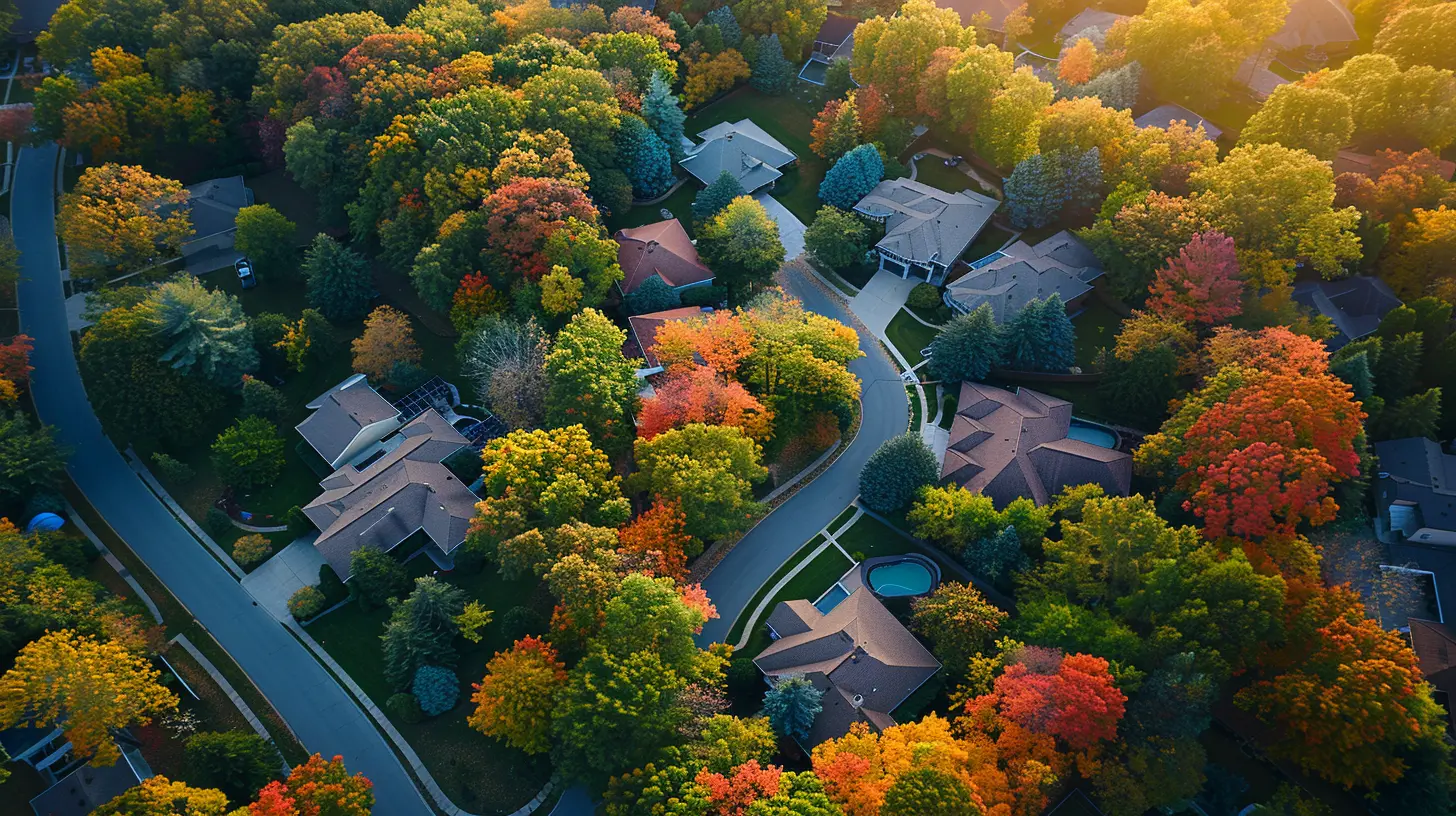What to Expect from the Housing Market in the Near Future
21 October 2025
The housing market has been a hot topic for years—rising prices, bidding wars, and mortgage rate fluctuations have kept buyers and sellers on their toes. Whether you’re a first-time homebuyer, a seasoned investor, or someone looking to sell, you're probably wondering: What does the future hold for the housing market?
In this article, we’ll take a deep dive into what experts are predicting for the housing market in the near future. Will home prices continue to rise? Will mortgage rates drop? Let’s break it all down. 
Current State of the Housing Market
Before looking ahead, let's take a quick snapshot of where things stand.- Home prices have skyrocketed in recent years, fueled by low interest rates, high demand, and limited inventory.
- Mortgage rates have fluctuated significantly, hitting historic lows in 2021 but rising sharply in 2023.
- Inventory shortages have caused fierce competition, driving prices even higher.
Now, the market is shifting. After a period of rapid price increases, things are beginning to stabilize—so what comes next? 
Will Home Prices Keep Rising or Finally Drop?
One of the biggest questions on everyone’s mind is: Are home prices going to crash?Well, the short answer is—probably not. While some markets may see slight price drops, a full-blown crash like we saw in 2008 is unlikely. Here’s why:
1. Supply and Demand Are Still Out of Balance
Even though demand has slowed a bit due to high mortgage rates, there’s still a significant housing shortage. This keeps prices from plummeting because there simply aren’t enough homes to meet buyer demand.2. Rising Construction Costs Limit New Builds
Builders are struggling with high material costs, labor shortages, and zoning restrictions. That means fewer new homes are being built, which keeps home values stable.3. Homeowners Are Holding Onto Low Mortgage Rates
Many homeowners refinanced when interest rates were at historic lows. Now that rates are higher, they’re choosing to stay put instead of selling, which keeps inventory tight and prevents prices from dropping too much.So, while prices might dip in some areas, don’t expect a drastic drop across the board. 
How Will Mortgage Rates Impact Buyers and Sellers?
Mortgage rates are the wildcard in the housing market. Over the past couple of years, we’ve seen rates climb significantly, making homeownership less affordable for many buyers.Will Mortgage Rates Drop Soon?
Experts believe that mortgage rates could start to ease in the next year, especially if inflation cools down. However, it’s unlikely we’ll see the extremely low rates of 2021 again anytime soon.How Higher Rates Affect Buyers
- Higher rates mean higher monthly payments, which can price some buyers out of the market.- Many buyers are waiting on the sidelines, hoping rates will drop before they make a move.
What Higher Rates Mean for Sellers
- Fewer buyers in the market could mean homes sit longer before selling.- Sellers might have to adjust their expectations when it comes to pricing.
The good news? If rates do start to come down even slightly, more buyers may jump back in, creating more movement in the market. 
Will the Housing Inventory Improve?
One of the biggest challenges in recent years has been the lack of available homes. So, will we finally see an improvement in housing inventory?1. Homeowners Are Staying Put
As mentioned earlier, many homeowners locked in ultra-low mortgage rates and aren’t eager to sell and take on a higher rate. This means existing home inventory will likely remain tight.2. New Construction Is Lagging
Builders are still facing obstacles, from labor shortages to high material costs. While new home construction is happening, it’s not keeping pace with demand.3. Investors Are Holding Onto Properties
Many investors who bought homes as rentals during the pandemic are holding onto them instead of selling, further limiting available inventory.Overall, we may see a slight improvement in inventory, but it’s unlikely we’ll have a flood of new listings anytime soon.
Will There Be Another Housing Market Crash?
With rising interest rates and economic uncertainty, many people fear another housing market crash. But is that something we should really be worried about?Why a Crash Is Unlikely
Unlike 2008, today’s market is fundamentally different. Here’s why:- Stricter Lending Standards – Lenders are far more cautious, meaning we don’t have a flood of risky loans like we did before the last crash.
- Strong Homeowner Equity – Homeowners today have much more equity in their homes, reducing the risk of widespread foreclosures.
- Supply and Demand Dynamics – The ongoing housing shortage keeps prices from plummeting.
While prices may adjust and the market may cool, a dramatic crash isn’t on the horizon.
Should You Buy or Sell in the Near Future?
Now comes the big question—should you buy or sell a home in this market? The answer depends on your personal circumstances.Thinking About Buying?
- If you find a home you love and can afford the monthly payment, it might be a good time to buy—especially if mortgage rates drop in the future and you can refinance.- Waiting could mean lower interest rates, but there’s no guarantee that home prices won’t rise again once demand picks up.
Considering Selling?
- If you need to sell, pricing competitively and working with a great real estate agent can help you attract buyers in this shifting market.- If possible, waiting for a slight dip in mortgage rates could bring more buyers back into the market.
Ultimately, your decision should be based on your personal financial situation and long-term goals rather than market timing alone.
Final Thoughts on the Future of the Housing Market
The housing market is always evolving, but one thing remains constant—it’s unpredictable. While we may not see another housing boom like we did in 2020-2021, the market is likely to stabilize rather than crash.Home prices may fluctuate, mortgage rates may shift, and inventory may see some improvement, but overall, a balanced market may be on the horizon.
Whether you’re buying or selling, staying informed and working with a knowledgeable real estate professional can help you navigate the changes ahead. The key is to focus on what’s best for you rather than trying to time the market perfectly.
So, what do you think? Are you planning to make a move, or are you waiting to see where the market goes? Let’s chat in the comments!
all images in this post were generated using AI tools
Category:
Real Estate MarketAuthor:

Kingston Estes
Discussion
rate this article
1 comments
Antonia Holland
Thank you for shedding light on the future of the housing market. Your insights provide valuable guidance for potential buyers and investors as they navigate these evolving conditions. Looking forward to more updates!
October 25, 2025 at 3:30 AM

Kingston Estes
Thank you for your kind words! I'm glad you found the insights helpful. Stay tuned for more updates!


